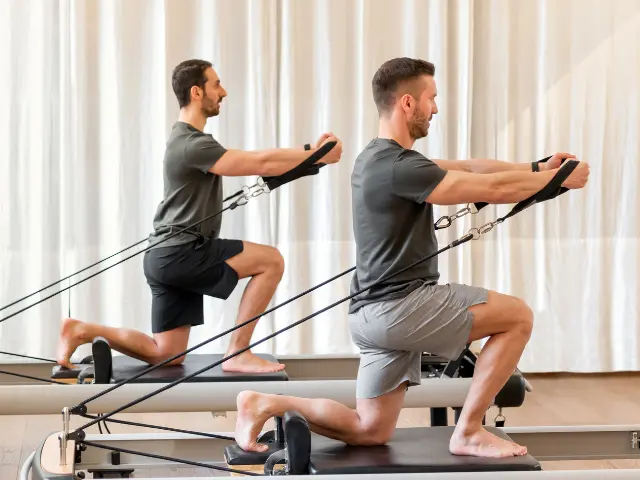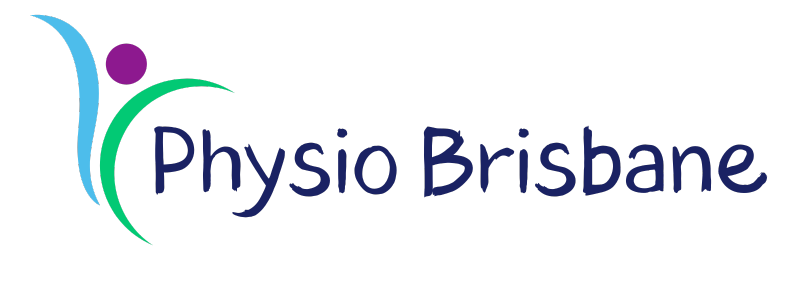People of all ages and backgrounds can enjoy the benefits of exercise therapy, although, those experiencing musculoskeletal issues, whether from poor posture, chronic pain, or general wear and tear, will certainly find the therapeutic activities life-altering.
For chronic pain management, physiotherapy has been shown to mitigate the effects of arthritis and back pain. In post-surgery patients, manual therapy is almost always part of the rehabilitation process, especially after orthopaedic procedures like knee or hip replacement.
Athletes also turn to physiotherapy for injury prevention and rehabilitation, and in some cases for conditioning and return to competition. Likewise, individuals with physical disabilities use physiotherapy to improve mobility and function, enhancing their quality of life.
There are plenty of reasonable applications, but to drive home our point, physiotherapy can be of benefit and fulfilling for any individual. With that said, let’s explore the top benefits of exercise therapy below.
Benefits of Exercise Therapy

Improve Endurance
Exercise therapy can help improve endurance by making both body and mind stronger and more efficient. Mentally, regular exercise can boost your ability to concentrate for longer periods and reduce stress, which can otherwise wear you down.
Endurance exercises and physical therapy also strengthen your cardiovascular system and improve blood circulation. Not to mention that workouts present an excellent way for your body to use fat for energy, as well as build muscles to become stronger and resistant to fatigue.
Improve Strength
Physical therapists can recommend targeted strengthening exercises that focus on muscle activation and endurance. Resistance training, bodyweight exercises, and weightlifting are some common strength training routines that are used to progressively reinforce your muscle and bones.
Moreover, therapeutic exercise promotes proper technique and form, which maximizes the effectiveness of strength-building exercises while minimising the risk of injury. Likewise, many athletes work with a physical therapist for injury rehabilitation or physical fitness training.
Reduce the Risk of Injury
As we’ve shared, therapeutic exercises reduce the risk of injury.
If you live an active lifestyle, physical therapists can work with you to come up with an exercise prescription depending on your fitness goals or objectives.
For example, they can recommend flexibility exercises and balance exercises to help improve your movement patterns, posture, and alignment, which are then crucial for safely and effectively increasing strength and flexibility.
If you’re gearing up for competition, you can also work with a physiotherapist to create a program that will accommodate an increase in physical activity.
Maintain or Improve Overall Health
Exercise therapy helps maintain or improve overall health by promoting cardiovascular fitness, enhancing muscular strength, and boosting flexibility.
Regular physical activity strengthens the heart, improves circulation, and increases lung capacity, which collectively lowers the risk of chronic diseases and other respiratory ailments and conditions.
Meanwhile, a moderated exercise program can help regulate body weight and lower bad cholesterol levels. Additionally, gains in muscle strength and endurance enhance metabolic function and boosts the body’s immune response, making it more resilient against illnesses.
Improve Mental Health
Beyond the physical benefits, exercise therapy plays a role in taking care of our mental and emotional well-being [1]. Regular exercise has been shown to reduce symptoms of anxiety, depression, and stress by stimulating the release of endorphins—our body’s natural pain reliever and mood booster.
On top of these biochemical perks, exercise therapy fosters mental health by providing a structured routine and a sense of accomplishment. For example, setting and achieving fitness goals can empower one’s self-esteem and confidence, which are both integral for psychological resilience.

What’s the Difference Between Physiotherapy Exercise Therapy and General Exercise Therapy?
Physiotherapy exercise therapy and general exercise therapy can be differentiated through their primary focus and approach to body and mental fitness.
On that note, physical therapy focuses on an individual’s specific needs, often aimed at rehabilitation, pain relief, and injury prevention. Hence, trained physiotherapists use exercise regimens as part of a broader treatment plan to address specific medical conditions, injuries, or disabilities.
For example, physiotherapists are typically relied upon to promote fitness programs and manual therapy that can help people with cardiovascular concerns, breathing issues, and various musculoskeletal issues in their recovery.
In addition, physiotherapists take account the medical history of each patient to ensure exercise therapy programs are both effective and safe. They can even provide education and guidance in how good form and posture can be maintained in daily activities and during workouts.
On the other hand, general exercise therapy covers a broader approach and tends to promote physical activities that centres on overall health, fitness, and well-being rather than treating specific medical conditions.
Frequently Asked Questions

Can physiotherapy help with chronic conditions?
Physiotherapy can help manage conditions like arthritis and chronic back pain by putting together exercises that focus on reducing musculoskeletal pain and restoring movement.
How Can Physiotherapy Help with Pain Management?
Physiotherapy uses techniques like manual therapy, structured exercises, and modalities like ultrasound, dry needling, gait training, or TENS (Transcutaneous Electrical Nerve Stimulation) to reduce physical pain and help treat various musculoskeletal conditions.
Is Physiotherapy Beneficial for Sports Injuries?
Yes! Sports physiotherapy is shown to aid in the rehabilitation and recovery of sports-related injuries. In addition, athletes take on endurance training, resistance training, and other forms of exercise therapy to help prevent injuries and boost athletic performance.
How Does Physiotherapy Help with Improving Mental Health?
Exercise and physical activity promoted in physiotherapy can help reduce stress and anxiety, improve sleep patterns, and induce relaxation, which are all integral in one’s overall mental health.
Can Physiotherapy Be Beneficial During Pregnancy?
Yes, physiotherapy can provide pain relief, improve posture, and prepare the body for childbirth during pregnancy [2].
How is Aerobic Exercise Used in Physiotherapy?
Aerobic exercises are commonly used in physiotherapy to improve cardiovascular health and aid in the rehabilitation process.
For example, walking, cycling, and swimming are often recommended to help strengthen the heart and improve circulation, especially lowering blood pressure and thwarting the risk of heart attacks.
Can Physiotherapy Be Used to Support Regular Fitness?
Yes, physiotherapy can be used in personalised fitness programs tailored to individual fitness levels and objectives.
Physiotherapists, can educate clients on safe exercise practices, including proper warm-ups, cool-downs, and techniques to avoid common injuries and boost their workout efficiency.

Book Your Physiotherapy Prescribed Exercise Program
If you’re dealing with pain, recovering from an injury, or just striving to improve your overall health and well-being, consulting with your local physiotherapist could be a game-changer. In Brisbane, that would be the exceptional team of Physio Brisbane.
References:
[1] Vadivelu, Nalini, et al. (2017). Pain and Psychology-A Reciprocal Relationship. The Ochsner Journal, 17(2): 173-180.
[2] Int J Gynaecol Obstet. (2022) A guide for physiotherapeutic care during pregnancy, labor, and the postpartum period during the COVID‐19 pandemic. Epub 2021 Nov 13.






